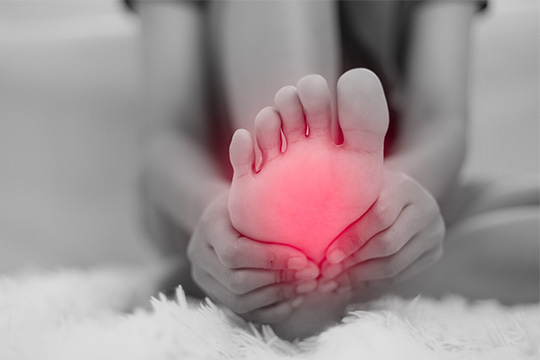Home > Disease and Treatments > Pregnancy Nutrition: The Best Foods for You and Your Baby
Pregnancy Nutrition: The Best Foods for You and Your Baby
Pregnancy is a time of anticipation, transformation, and immense responsibility. Among the many factors influencing a healthy pregnancy, nutrition plays a crucial role . At the Department of Endo–Gynecology& Obstetrics, Royal Care Hospital, we emphasize the vital role of proper nutrition for both mother and baby at every stage of pregnancy.
Why Nutrition Matters During Pregnancy
The nutritional choices a pregnant woman makes have a direct impact on the development and health of her baby. From organ formation to brain development, the baby relies entirely on the nutrients passed through the placenta. For the mother, a nutritious diet helps prevent complications like gestational diabetes, anemia, preterm labor, and fatigue.
Key Nutrients for a Healthy Pregnancy
1. Folic Acid
Folic acid (vitamin B9) is critical for preventing neural tube defects such as spina bifida. It's especially important during the first trimester.
Sources :
- Leafy green vegetables
- Citrus fruits
- Fortified cereals
- Beans and lentils
2. Iron
Iron supports the increased blood volume in pregnancy and prevents anemia, which can cause tiredness and affect oxygen delivery to the baby.
Sources :
- Red meat
- Spinach
- Dried fruits
- Iron-fortified cereals
Tip : Pair iron-rich foods with vitamin C sources (like oranges) for better absorption.
3. Calcium
Calcium is necessary for the development of strong bones, teeth, and muscles in the baby.
Sources :
- Milk and dairy products
- Almonds
- Tofu
- Broccoli
4. Protein
Protein helps build the baby’s tissues and organs, and supports uterine and breast growth in the mother.
Sources :
- Eggs
- Fish and lean meat
- Dairy
- Legumes and nuts
5. Omega-3 Fatty Acids
These healthy fats are vital for the development of the baby’s brain and eyes.
Sources :
- Fatty fish like salmon (limit to safe levels due to mercury)
- Chia seeds
- Flaxseeds
- Walnuts
6. Vitamin D
Vitamin D helps regulate calcium levels and supports bone health for both mom and baby.
Sources :
- Fortified dairy products
- Egg yolks
- Safe sunlight exposure
The Trimester-Wise Nutritional Focus
Pregnancy is typically divided into three trimesters, and nutritional needs evolve throughout:
First Trimester (Weeks 1–12)
- Focus on folic acid and vitamin B6 to help manage morning sickness.
- Small, frequent meals help prevent nausea.
- Stay hydrated and eat bland foods like bananas and crackers when needed.
Second Trimester (Weeks 13–26)
- Increase calorie intake moderately (about 300 extra calories per day).
- Iron, calcium, and protein requirements increase significantly.
- Include whole grains, colorful vegetables, and dairy.
Third Trimester (Weeks 27–40)
- Emphasize omega-3s and vitamin D for brain and bone development.
- Fiber-rich foods help prevent constipation.
- Stay well-hydrated to reduce swelling and cramps.
Foods to Avoid During Pregnancy
Certain foods can pose a risk to the developing baby and must be limited or avoided:
- Raw or undercooked meats/eggs – Risk of bacterial infection
- Unpasteurized dairy products – Risk of listeria
- High-mercury fish (e.g., shark, swordfish) – Affects fetal brain development
- Caffeine in excess – Limit to 200 mg per day
- Alcohol and tobacco – Strictly avoid
Practical Tips for Healthy Eating
Even with the best intentions, pregnancy cravings and aversions can make balanced eating difficult. Here are some practical suggestions:
- Keep healthy snacks like fruits, nuts, and yogurt handy
- Don’t skip breakfast; opt for oatmeal, boiled eggs, or smoothies
- Choose whole grains over refined options (brown rice, whole wheat bread)
- Stay active (as advised by your doctor) to boost appetite and metabolism
Hydration Is Key
Water is just as important as food. Adequate hydration:
- Prevents urinary tract infections
- Supports amniotic fluid levels
- Reduces swelling
Aim : 8–10 glasses of water per day
When to Consult a Gynecologist or Nutritionist
Every pregnancy is different. If you experience any of the following, consult a doctor or nutritionist immediately:
- Sudden weight gain or loss
- Severe vomiting or nausea
- Unusual food cravings (e.g., non-food items)
- Signs of anemia (fatigue, pale skin)
How Royal Care Hospital Supports Your Journey
At Royal Care Hospital’s Department of Endo–Gynecology& Obstetrics, our team of obstetricians, dietitians, and support staff work together to ensure the best outcomes for both mother and baby. Our antenatal programs offer:
- Customized dietary plans
- Prenatal supplements
- Regular health checks and scans
- Counseling on lifestyle and emotional well-being
Pregnancy nutrition isn’t just about eating more—it’s about eating right. Making informed, mindful choices during these precious months lays the foundation for a healthier future—for both you and your baby. Let Royal Care Hospital be your trusted partner in this life-changing journey.
Your health is our priority, and we’re with you every step of the way—from conception to delivery and beyond.
Appointments must be made 24 hours in advance.
Book an AppointmentRECENT BLOGS

Cardiovascular disease remains the leading cause of mortality worldwide, accounting for ne...
Read More
Headaches are among the most common ailments people experience, but not all headaches are ...
Read More
Living with diabetes means taking extra care of your health and one of the most important ...
Read More
